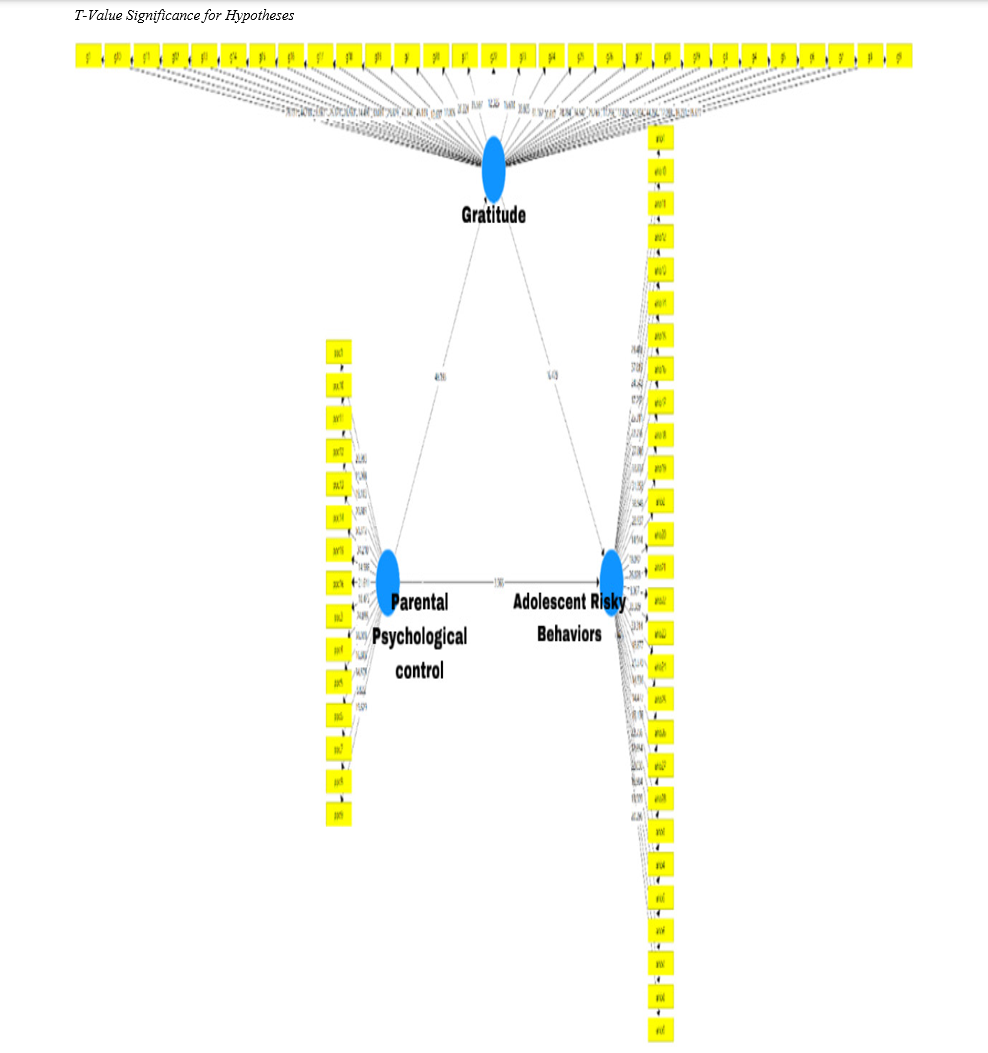The Impact of Parental Psychological Control on Adolescent Risky Behaviors with an Emphasis on the Mediating Role of Gratitude
Keywords:
Parental Psychological Control, Adolescents' High-Risk Behaviors, GratitudeAbstract
Objective: This study aimed to investigate the impact of parental psychological control on adolescent risky behaviors, with an emphasis on the mediating role of gratitude.
Methods and Materials: The research utilized a descriptive-survey design, with a sample of 361 first-year high school students in Tonekabon, selected through simple random sampling. Data were collected using the Iranian Adolescent Risk-Taking Scale, the Parental Psychological Control Scale (Soenens et al., 2010), and the Gratitude Scale (Morgan et al., 2017). Structural equation modeling (SEM) was employed to analyze the relationships between variables, using the Smart PLS software.
Findings: The results showed that parental psychological control has a significant negative impact on gratitude and a direct positive effect on adolescent risky behaviors. Gratitude was found to mediate the relationship between parental psychological control and adolescent risky behaviors, with partial mediation. Additionally, gratitude was negatively associated with risky behaviors, acting as a protective factor.
Conclusion: Parental psychological control increases the likelihood of risky behaviors in adolescents, while gratitude plays a significant mediating role in reducing this effect. Interventions focused on enhancing gratitude may help mitigate the negative influence of psychological control on adolescent behavior.
Downloads

Downloads
Additional Files
Published
Submitted
Revised
Accepted
Issue
Section
License
Copyright (c) 2024 Tayebeh Nasiri Farsi (Author); Samira Pali (Corresponding Author)

This work is licensed under a Creative Commons Attribution-NonCommercial 4.0 International License.








